Indoor air quality
What is Indoor Air Quality (IAQ)?
Indoor Air Quality (IAQ) refers to the air quality in a building or structure, breathed in every day by the building’s occupants.
Poor indoor air quality has been linked to sick building syndrome, ill health, reduced well-being and productivity, impaired learning in schools and delayed recovery in hospitals.
Polluted air is responsible for as many as 36,000 deaths a year in the UK, according to Public Health England (PHE).
HVAC (Heating, Ventilation, and Air Conditioning) systems play a crucial role in maintaining good indoor air quality (IAQ)
Air filtration
HVAC systems come with air filters that trap airborne particles like dust, pollen and harmful chemicals to prevent them from circulating in the air. High-efficiency filters can even capture bacteria and viruses, improving IAQ. Daikin Applied utilises varying filter grades, dependent on local environment and the area being served.
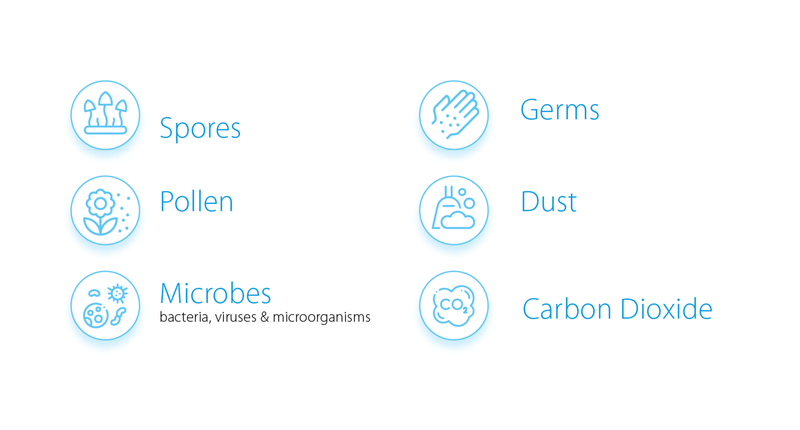
Ventilation
HVAC systems can bring in fresh outdoor air and exhaust stale indoor air, improving air circulation and preventing the build-up of indoor pollutants. This is especially important in spaces where indoor pollutants are generated, such as hospitals and industrial buildings.
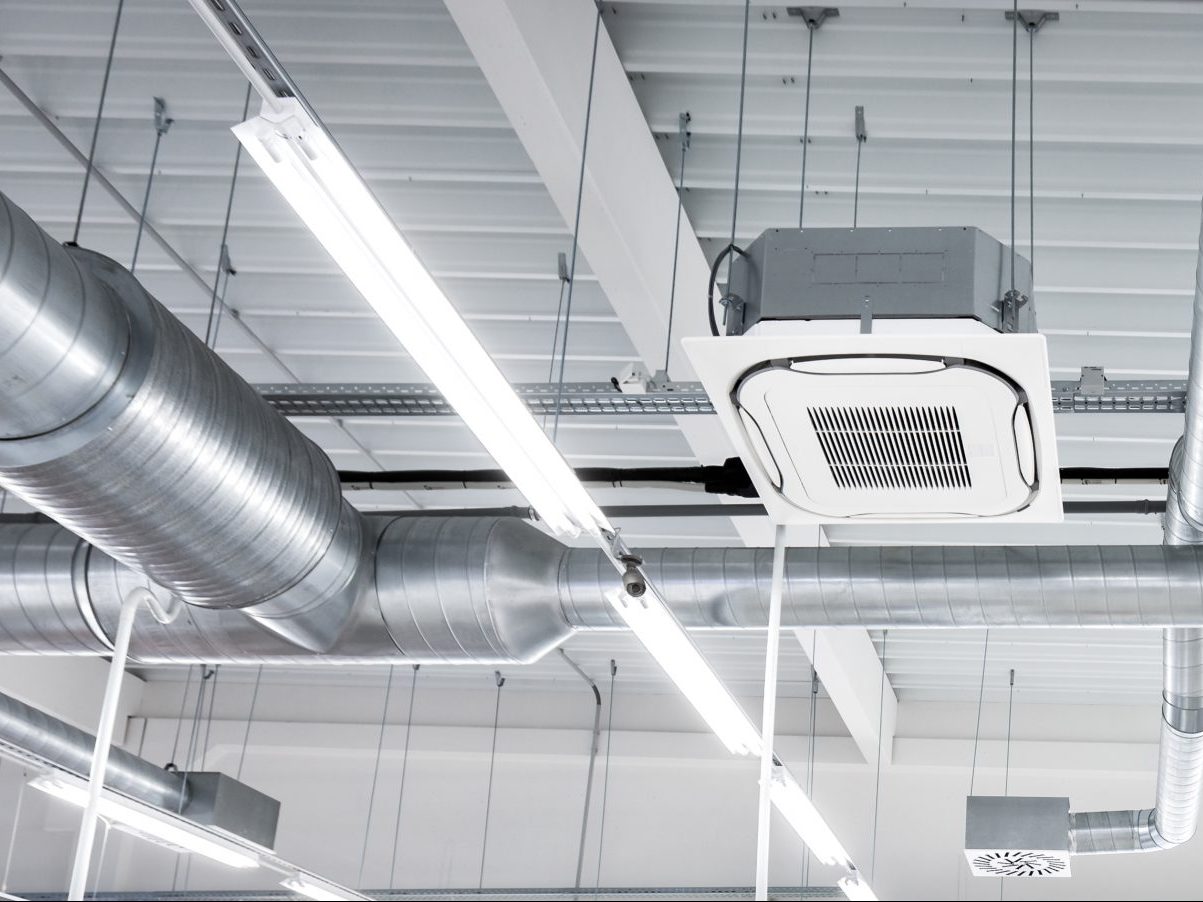
Humidity control
HVAC systems can regulate the humidity levels in indoor spaces, which can prevent the growth of mould and bacteria. Maintaining a relative humidity level between 30-60% is recommended for optimal IAQ and comfort.
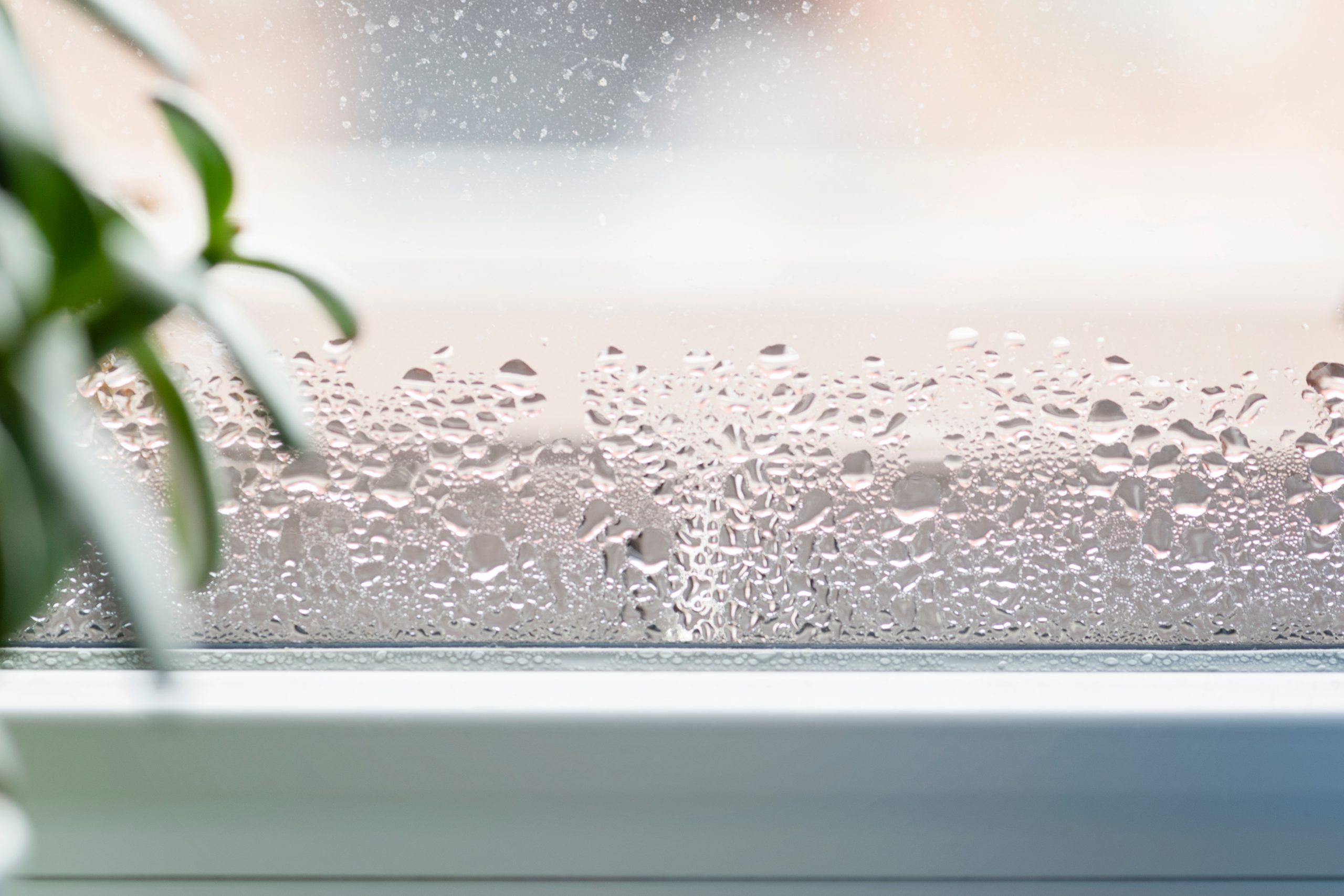
Heating and ventilation solutions
Air Handling Units (AHU)
An Air Handling Unit will ensure that all or part of your building receives filtered clean air at the optimal temperature and humidity levels required for desired operation.
At Daikin Applied UK, we have a range of air handling units to suit any application including HTM-03-01, Data Centre, Pharmaceutical & Commercial.
All our air handling units are made in the UK to your expectations and are Eurovent certified to the latest energy efficiency regulations.
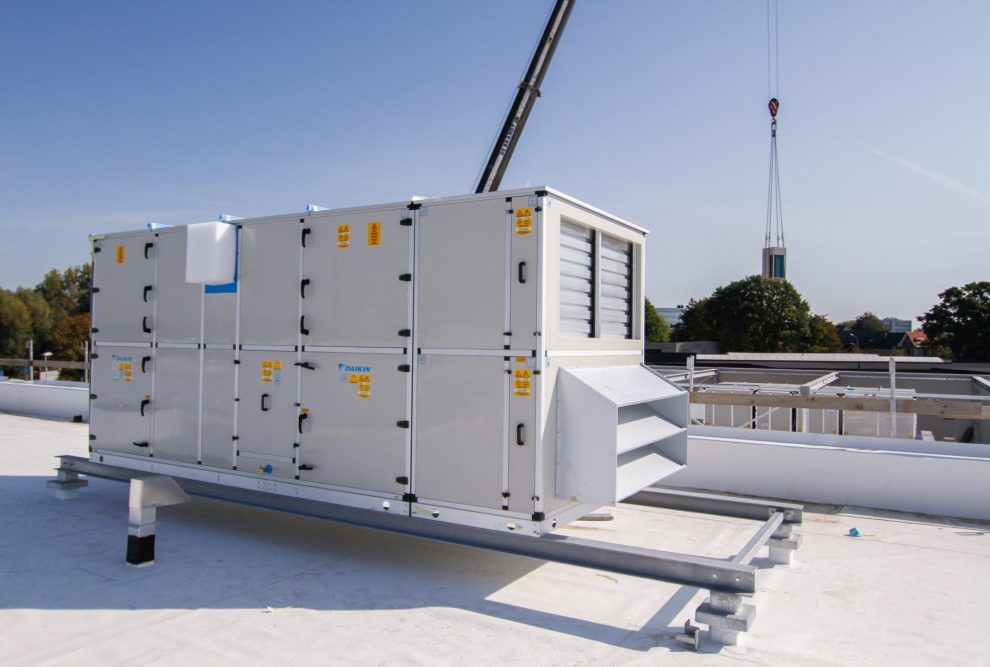
Chillers and Heat Pumps
Chillers and heat pumps provide efficient cooling and heating, which helps to maintain a comfortable indoor temperature and humidity level. This can prevent the growth of mould and bacteria, which thrive in warm and humid environments.
Chillers and heat pumps can provide individual temperature control in different areas of a building. This can prevent overcooling or overheating in certain areas, which can lead to uncomfortable and unhealthy IAQ conditions.
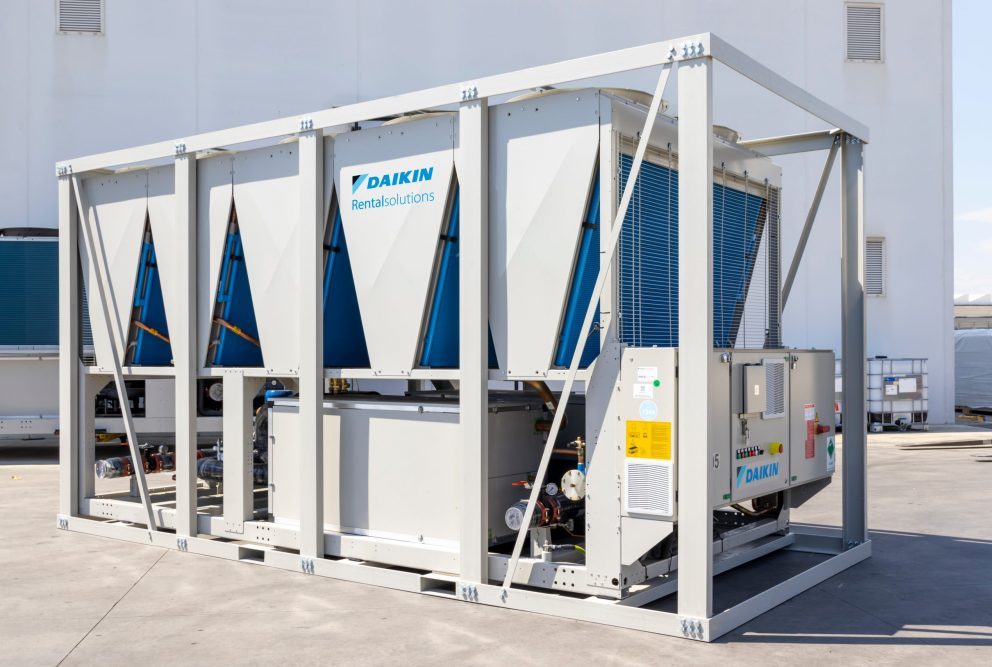
Remote monitoring solutions to improve your Indoor Air Quality
IEQ Sensor: Our new indoor environmental quality sensor
The Daikin IEQ Sensor measures your well-being, tracking indoor air quality, environmental comfort and electromagnetic pollution. It is available with 12 sensors and 15 parameters, and it connects through your WiFi network or via NB-IoT technology.
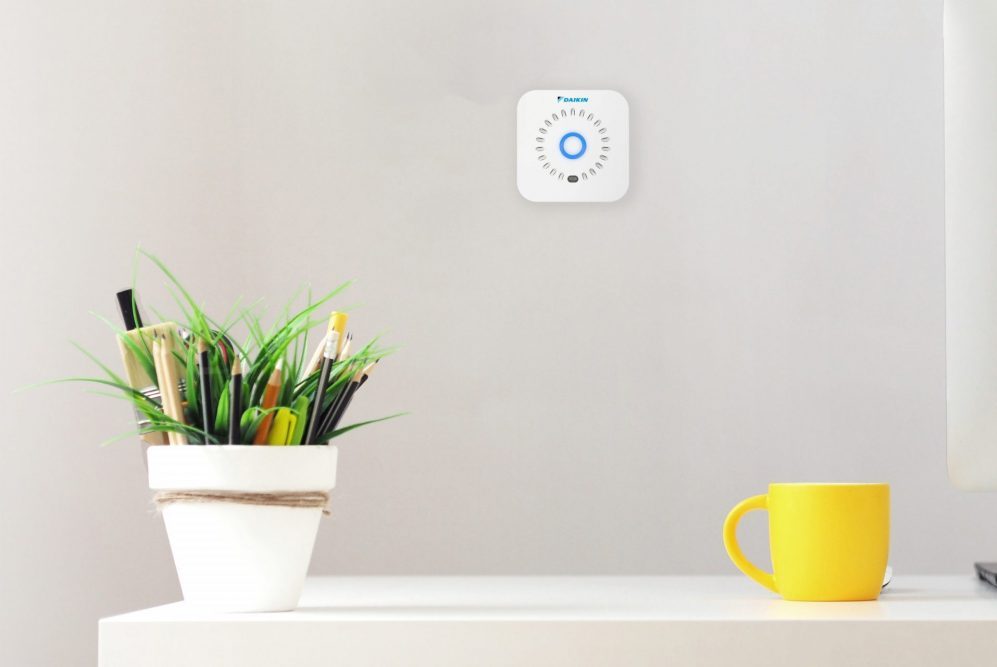
Managing relative humidity with Daikin on Site
Managing temperature and relative humidity (RH) is made easier today by the availability of sophisticated digital control systems.
Active remote monitoring of systems (like Daikin on Site) is made possible thanks to internet connectivity that can provide important diagnostics for both maintenance purposes and optimised ongoing operation.
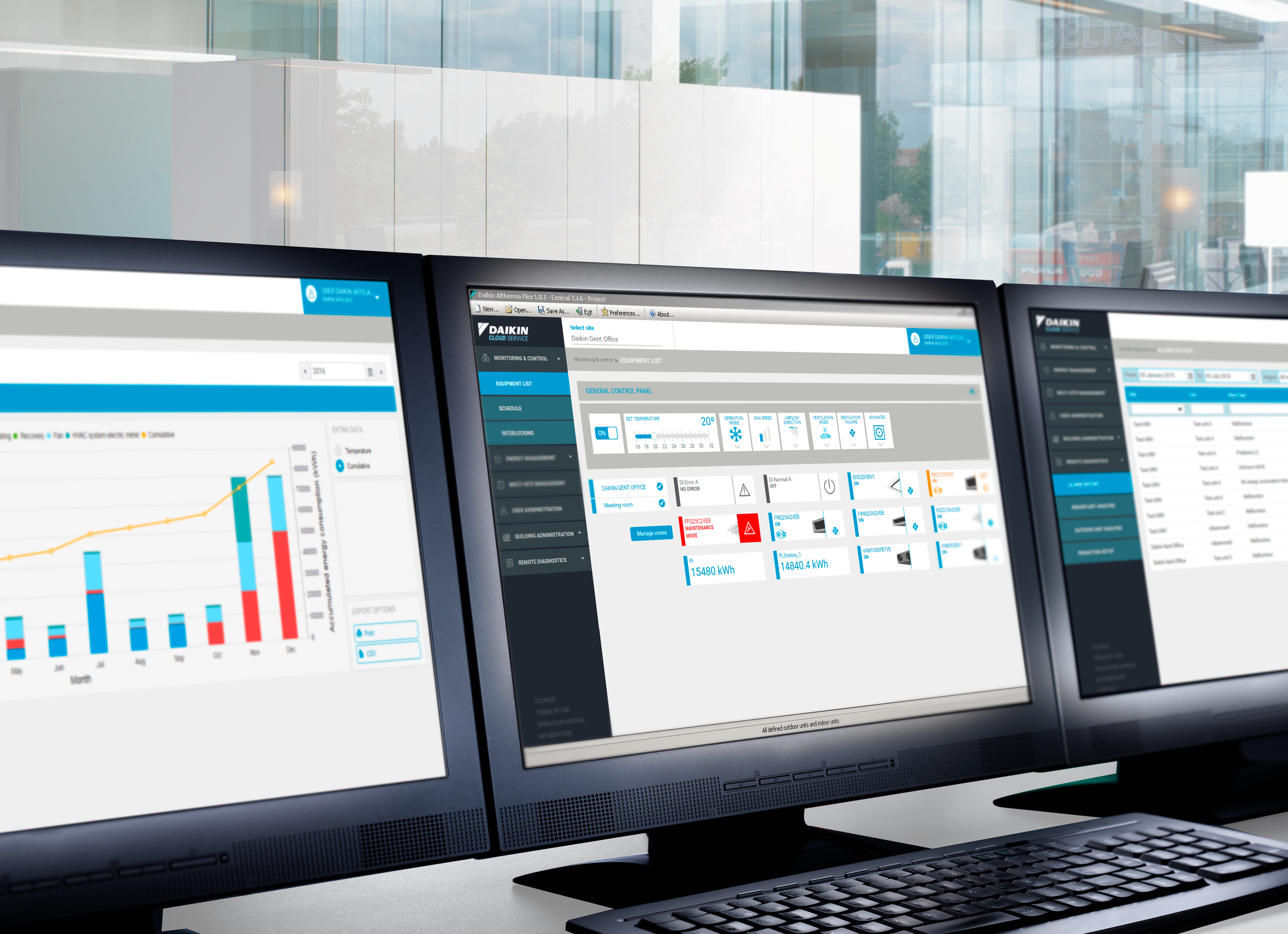
Contact Daikin Applied UK now to find out how we can help you improve the Indoor Air Quality of your building
Book an Indoor air quality (IAQ) audit
It is an important first step to start monitoring the indoor air quality within your daily environment in order to prevent the harmful consequences caused by invisible pollutants.
Our technical experts can assess your indoor air quality and undertake technical audits of your HVAC system to lower the risk of airborne infections.

Regular service and maintenance
It’s important to note that regular maintenance of chillers and heat pumps is necessary to ensure they are functioning properly and effectively improving IAQ. This includes cleaning and replacing air filters, checking refrigerant levels, and inspecting and cleaning coils and drains.
Dust and dirt can affect your ventilations systems and prevent them from maintaining an optimum air quality. Maintenance should include checking intakes and exhausts for signs of dirt build-up or damage. Inspections of ductwork and units should also be carried out on a regular basis.

Ask our service experts for advice
Our service experts can identify a range of options to help you improve your indoor air quality:
- Remote monitoring
- Additional ventilation
- Replacement filters or fans
- Refurbishment of your HVAC systems
- Replacement of parts

AHU refurbishment to improve IAQ
As well as improving energy efficiency and day-to-day operation, upgrading an AHU can substantially extend its useful operating life and improve indoor air quality (IAQ).
This saves upfront capital costs and reduces environmental impact by minimising embodied carbon.
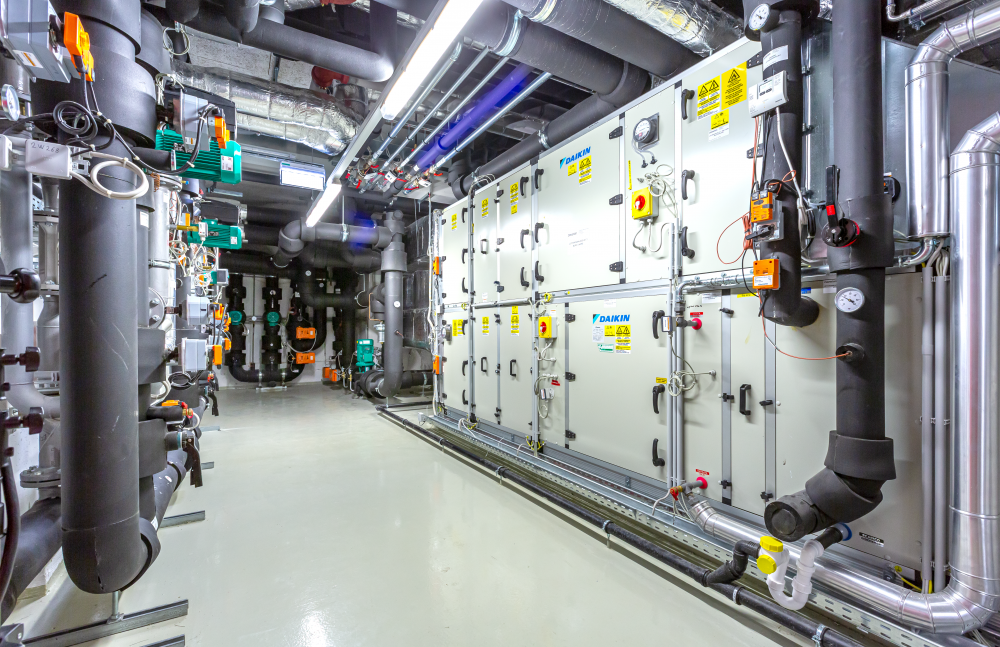
Spare parts
If your cooling equipment is running 24/7 throughout the year, it is inevitable that components may wear over time. This will impact the effectiveness of your HVAC system and impact Indoor Air Quality (IAQ), energy efficiency and the lifespan of your equipment.
Daikin Applied UK offers genuine replacement spare parts and components for Daikin and McQuay products.

